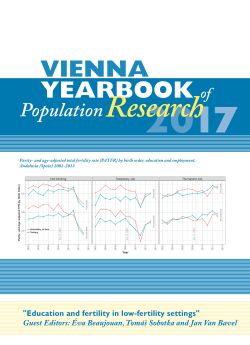
Vienna Yearbook of Population Research 2017, pp. 293-330, 2018/06/18
Special issue on Education and fertility in low-fertility settings

Unlike achieved fertility, fertility intentions are often positively correlated with education. However, the conditions under which such a positive relationship exists are not yet well known. Using 86 pieces of research covering 13 European countries that were published between 1990 and 2011, we assess in a quantitative manner the temporal and cross-country variation in the relationship between educational attainment and reproductive intentions. Because of the sequential nature of reproductive decisions and the gendered nature of each individual’s life course, we look separately at childless women and women with one child, and compare women with men. Our findings show that both first and second birth intentions and educational attainment are positively correlated, but that this relationship – which is stronger for men than for women – tends to disappear when the normative value of a two-child family is reached. Structural labour market characteristics explain a good portion of the cross-country variance: the educational slope of first and second birth intentions is steeper in countries with large shares of women in vulnerable employment situations or in part-time employment, and is flatter in countries with gender-equal labour force participation and large shares of women in highly qualified employment.